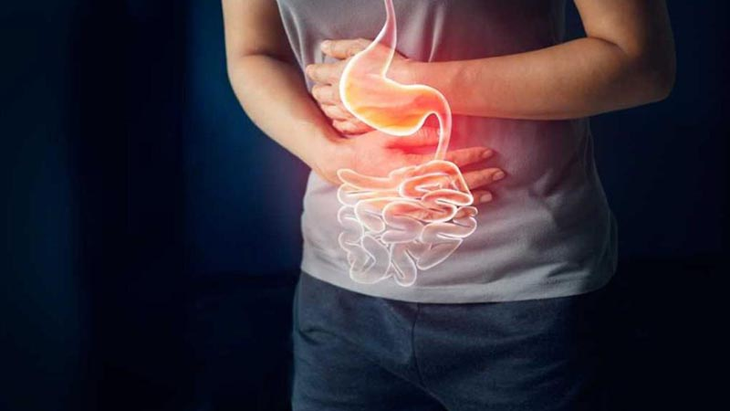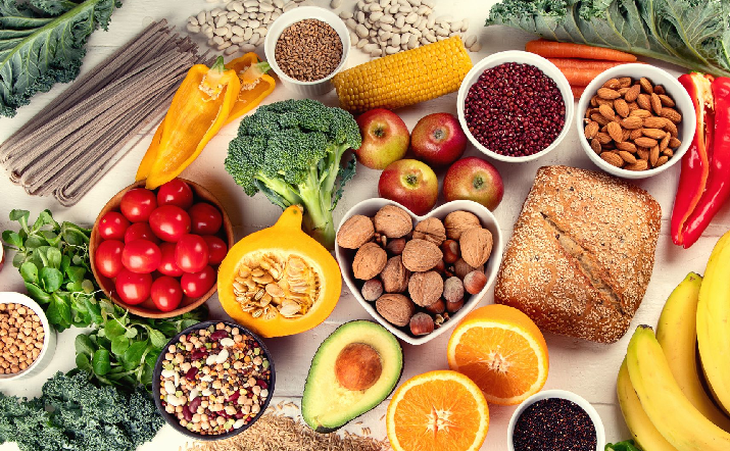
The digestive system plays an important role in maintaining overall health - Illustration photo
Is indigestion a disease?
Doctor Tran Van Son, Phu Tho General Hospital, said that digestion is the process of converting food into nutrients that can be absorbed through the digestive tract and into the blood.
This process takes place from the mouth to the large intestine. Any factor that disrupts, hinders or interrupts the digestive process in the digestive tract is called a digestive disorder.
Digestive disorders are not a disease but the result of many different causes, the most common of which are colon diseases such as chronic colitis or irritable bowel syndrome, which can disrupt digestive function, causing abdominal pain, diarrhea or prolonged constipation.
Gastric and duodenal ulcers and gastroesophageal reflux affect the ability to digest and absorb nutrients. The beneficial and harmful bacteria in the intestines are unbalanced due to antibiotic abuse or an inappropriate diet.
Consuming dirty, unhygienic food, irregular eating habits, or consuming too much spicy food and alcohol are common causes of digestive disorders. Prolonged stress negatively affects the contraction function of the stomach and digestive system.
According to Dr. Son, although digestive disorders do not directly threaten life, they can cause many negative impacts on the health and quality of life of the patient.
In the mild stage, this condition makes the patient feel tired, stressed and uncomfortable. Frequent bowel movements not only cause inconvenience in daily life but also dehydrate the body, leading to weakness.
Furthermore, prolonged loss of appetite can cause nutritional deficiencies, rapid weight loss, reduced resistance, and affect work productivity and daily activities.
If not treated promptly, digestive disorders can progress to more serious diseases such as impaired digestive function, irritable bowel syndrome, colitis, colon polyps or even gastrointestinal bleeding.
In particular, prolonged conditions can increase the risk of colorectal cancer - one of the dangerous diseases that can be life-threatening.

A reasonable diet helps improve digestive function - Illustration photo
Foods to avoid to protect the digestive system
According to Dr. Nguyen Thi Lan Huong - Phu Tho General Hospital, a reasonable diet not only helps improve digestive function but also strengthens the body's resistance.
To protect the digestive system, it is necessary to avoid raw foods , because they can contain harmful bacteria, increasing the risk of intestinal infections and causing digestive disorders. It is necessary to avoid unsanitary products that may contain toxic chemicals, causing intestinal damage.
In addition, avoid alcoholic beverages and caffeine, which negatively affect the digestive system and increase the risk of stomach ulcers. Acidic fruits such as oranges and lemons can aggravate diarrhea or bloating.
Avoid dried fruits as they are high in sugar and can upset your digestive system, causing constipation or diarrhea. Finally, avoid fried foods and spicy foods. may irritate the digestive tract, increasing the risk of stomach ulcers and acid reflux.
In addition to choosing the right foods, it is necessary to follow some important nutritional principles to best protect the digestive system, such as using clean foods with clear origins. Eat moderately, prioritize eating a lot in the morning and at noon, and limit eating too much in the evening.
Add green vegetables and fruits to your daily diet. Drink enough water every day, you can add mineral water containing potassium and magnesium. Increase vitamin C from fruits such as guava and grapefruit.
Good foods, beneficial for the digestive system
Yogurt : Contains many probiotics that help balance intestinal bacteria, aid digestion and reduce symptoms of irritable bowel syndrome.
Kefir: A fermented milk rich in beneficial bacteria, which helps protect the digestive system and boost immunity.
Apple cider vinegar: Helps stimulate stomach acid production, aids in digestion of fats, carbohydrates and proteins.
Kombucha tea, kimchi : Contains many probiotics that are beneficial for the intestines thanks to the natural fermentation process, helping to support digestion and reduce intestinal inflammation.
Sauerkraut : Provides lactobacillus bacteria that help eliminate harmful bacteria, reducing symptoms of irritable bowel syndrome; Rich in compounds such as sulforaphane that help prevent oxidative damage.
Coconut oil: Has antibacterial and antiviral properties, helps balance bacteria in the intestines.
Salmon : Rich in omega-3, has anti-inflammatory effects, helps heal damage in the digestive system.
Garlic : Rich in nutrients including organic sulfur compounds and glycosides that have anti-inflammatory effects. At the same time, the germanium and selenium in garlic help the body fight cell mutations, prevent the formation of free radicals, and effectively support cancer prevention.
Dark chocolate : Contains many bioactive organic compounds such as polyphenols, flavonoids and catechins that help eliminate free radicals.
Bone broth : Provides L-glutamine, glycine, arginine, and minerals that support anti-inflammation and help heal intestinal damage.
Onions : Rich in soluble fiber which helps promote the growth of beneficial bacteria and improve digestion.
Foods rich in fiber : Such as artichokes, beans, raspberries and apples help improve digestive function and reduce the risk of bowel disease.
Source: https://tuoitre.vn/bao-ve-he-tieu-hoa-tranh-6-thuc-pham-nay-20250325171553385.htm































![[Photo] National Assembly Chairman attends the seminar "Building and operating an international financial center and recommendations for Vietnam"](https://vphoto.vietnam.vn/thumb/1200x675/vietnam/resource/IMAGE/2025/7/28/76393436936e457db31ec84433289f72)



































































Comment (0)